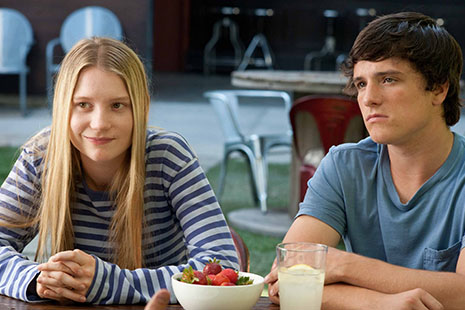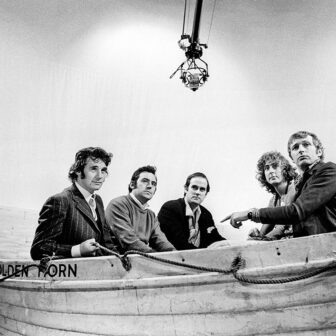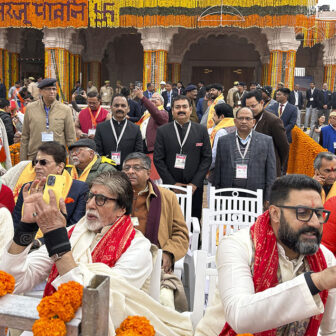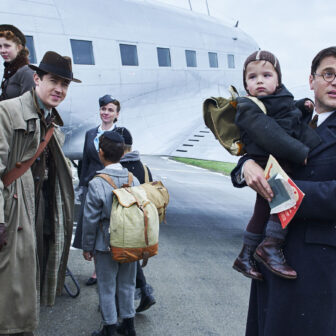THE Wheeler Centre’s week of cultural debates, Critical Failure?, began with film. Among the speakers, Adrian Martin berated the film exhibition industry for narrowing the range of viewing and response; there’s too much out there that we get no chance to see. He also told us why he quit reviewing for the Age, which wouldn’t let him put cinematic passions in front of commercial imperatives; for example, he couldn’t write on the career of Jacques Demy in preference to discussing the newest heavy-handed exercise by Oliver Stone. Some of the audience might have found his examples esoteric, but then (a sigh from Sydney) this was happening in Melbourne, that seriously intellectual city – does anywhere else have a Wheeler Centre? – and also, still and forever, the most cinema-conscious of Australian cities.
On the same panel, Fenella Kernebone canvassed the differences between reviewing and criticism, a distinction that should be upheld clearly for any medium. The first is journalism, commentary on what you might choose to spend your ticket-money on this week; the second is exploration and essay. Some academics in the field would like criticism to be informed by theory, but – given the huge challenges to aesthetics and history posed by the 115 years of cinema – it’s understandable that theory can be uncovered and developed along the way. “Theory” entails the discussion of aesthetics and effects; the conditions of production and reception; the place of the moving image in general culture. On the last, Adrian Martin vigorously attacked what he sees as the privileging of literary over audiovisual culture, in the review pages and elsewhere. For that, I’d raise a doubt. There aren’t nearly enough small cinemas scattered through our towns and suburbs to offer alternatives to Hoyts and Greater Union; it’s also true that outside the urban fringe neighbourhoods, there are too few bookshops making reading and thinking spaces within the centres of commerce.
People struggle hard to fill the gaps. Through this month (11–25 September) you can find the Silent Film Festival in Sydney at the Wesley Conference Centre in Pitt Street, and this offers a dozen examples from the vast array of pre-1930 production round the globe. Sound came to Hollywood in 1927, later elsewhere; one inclusion here, by the Japanese master Yasujiro Ozu, dates from 1933. This was Dekigokoro (Passing Fancy), one of Ozu’s many essays on family life and tensions between the generations; the screening was accompanied by Riley Lee on the shakuhachi, and the whole thing was a treat.
The silents were never really silent; pianists, organists, fiddlers and storytellers, talking live on stage, were parts of the event. In this week’s program Maria Okunev (soprano, guitarist and pianist) pursued the headlong adventures of Miss Mend (Russia, 1926) with much inventive vigour on the piano. The film was one of the early, cheerful Soviet takeoffs of Hollywood; one critic, the late Robin Wood, read into it a national mood of post-revolutionary optimism. Miss Mend is an intrepid secretary, the massed striking workers are healthy and innocent, the bosses and schemers stereotypical villains. There is a six-year-old boy on the sidelines to mess things up further; the journalists will do anything for a story; there are car chases, fights, city and snow scenes.
What we saw was only Part 1 of a three-chapter serial, but that was enough to disrupt any stereotypes we might have held on the Soviet cinema of the 1920s. Eisenstein’s Strike and The Battleship Potemkin, Dziga Vertov’s splendid Man with a Movie Camera, the early work of Pudovkin and Kozintsev are all parts of high modernism; it’s a good thing for our sense of history to know there was all this popular hilarity as well.
The program began with For the Term of His Natural Life (1927), with Colin Offord’s music. This Australian–American production was a popular, full-scale epic in its time, essentially an illustration of Marcus Clarke’s relentlessly melodramatic novel; surviving in eloquent fragments, it was restored in 1981 with enormous skill and care by Graham Shirley at the National Film and Sound Archive. This story always had everything – mistaken identities, fraud and scheming, a heroic love story, the truly horrific endurance of convicts on the run, even cannibalism; but the saga of the film’s recovery and slow, piecemeal restoration is a considerable story in itself.
For work of this kind, we couldn’t do without the National Film and Sound Archive, an underrated national institution by comparison with the major museums and galleries. It should be better valued than it is; and it should also be complemented by cinemathèques in each city, offering properly curated programs from all those times and places, including our own, of which generally we see far too little.
The silent program continues this week with René Clair’s marvellous The Italian Straw Hat (France, 1927) on Thursday evening; a Buster Keaton session on Saturday morning; King Vidor’s Bardelys the Magnificent (USA, 1926) – also retrieved from near-oblivion, and recently restored; and Chicago (1927) from Cecil B. DeMille’s production company, later on Saturday.
Meanwhile, back at the local movie-house: there are things to avoid, like Michael Winterbottom’s incomprehensibly nasty The Killer Inside Me, correctly identified in Geoff Gardner’s Film Alert roundup as “odious.” That’s Geoff’s word; one well-reputed Sydney reviewer, Paul Byrnes, thinks it’s one of the best films around. But in film narrative, violence, viciousness and gore surely have to take us somewhere – perhaps into some understanding of why a seemingly bright and affable young man becomes a serial killer. Casey Affleck is a considerable actor, but he and Winterbottom between them fail to shed any light. For a nice, tight, dark thriller, take The Disappearance of Alice Creed for preference; a three-hander with three superb performances, merciless tension, and an appreciable measure of depth.
For dialogue out of yesterday, today and next week, and friendly light entertainment in general, try The Kids Are All Right (director, Lisa Cholodenko), an agreeable Californian exercise, almost as witty as Sideways. Annette Bening and Julianne Moore play a middle-aged lesbian couple with two teenagers, and in the young roles Mia Wasikowska and Josh Hutcherson are wonderful. To underline the period, the girl is named after Joni Mitchell, and there’s a lot of David Bowie on the track. The kids engineer a meeting with their sperm donor, and things unravel from there. The plot is rather hard on the bumbling bloke in question (Mark Ruffalo). His organic orchard and garden help to fill the screen with intimations of a post-sixties, environmentally conscious moment in which a non-traditional way of making families shouldn’t be an issue.
This is the feel-good movie of the moment, but… Supposing sexual orientation isn’t essentially or finally this way or that? Supposing kids can adopt extra parents if they want to? Those questions are raised and left hanging, and I thought that the apparent conciliation at the end entailed what the French would call bad faith. It’s filmic fun to think about what such a story might have been in the hands of the now-late Claude Chabrol; you’d still have had the seductive pleasures of sunlit houses and gardens – he did those very well – but the betrayal would have led on to murder, and gay or straight would have made no difference at all.





